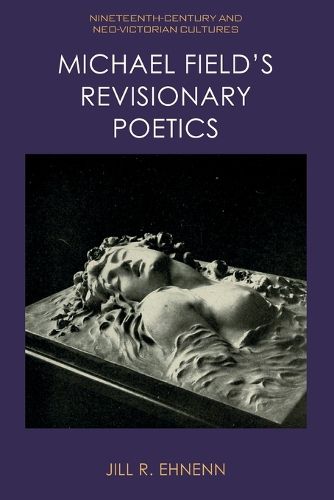Readings Newsletter
Become a Readings Member to make your shopping experience even easier.
Sign in or sign up for free!
You’re not far away from qualifying for FREE standard shipping within Australia
You’ve qualified for FREE standard shipping within Australia
The cart is loading…






All authors try to do something new, or tell an old story in a new way; but for Katharine Bradley and Edith Cooper, who wrote as Michael Field and called themselves 'Poets and Lovers', rewriting old stories, history and traditional literary forms with extraordinary innovation was nothing short of high art. Offering new readings of a wide range of Michael Field texts, this book asks: how do ambitious experiments with a joint diary, closet drama, ekphrasis, elegy and nature, devotional and love poetry help these women navigate the paradox of looking backward in order to achieve their goal 'to make all things new'? How do their revisionary poetics help the co-authors, as queer, female Aesthetes, cope with late-Victorian modernity? Through an interdisciplinary approach to their passionate and sometimes eccentric life and work, this book provokes thought about the fin-de-siecle and invites readers, like Michael Field themselves, to engage the past in order to create transtemporal community and to make sense of the present.
$9.00 standard shipping within Australia
FREE standard shipping within Australia for orders over $100.00
Express & International shipping calculated at checkout
All authors try to do something new, or tell an old story in a new way; but for Katharine Bradley and Edith Cooper, who wrote as Michael Field and called themselves 'Poets and Lovers', rewriting old stories, history and traditional literary forms with extraordinary innovation was nothing short of high art. Offering new readings of a wide range of Michael Field texts, this book asks: how do ambitious experiments with a joint diary, closet drama, ekphrasis, elegy and nature, devotional and love poetry help these women navigate the paradox of looking backward in order to achieve their goal 'to make all things new'? How do their revisionary poetics help the co-authors, as queer, female Aesthetes, cope with late-Victorian modernity? Through an interdisciplinary approach to their passionate and sometimes eccentric life and work, this book provokes thought about the fin-de-siecle and invites readers, like Michael Field themselves, to engage the past in order to create transtemporal community and to make sense of the present.